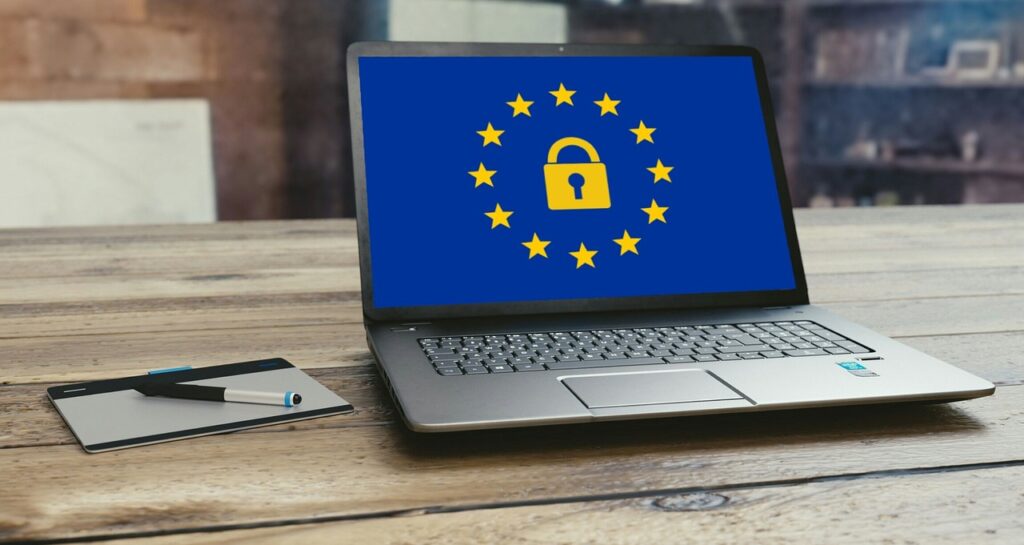In this GDPR series, let’s start by understanding what GDPR is and how it can potentially impact your business.
The General Data Protection Regulation (GDPR) is an EU legislation enacted to protect the personal data and privacy of individuals, European Union (EU) residents. It came into effect on May 25, 2018, and its scope includes every business, within and outside the EU, that processes the personal data of EU residents.
This legislation offers individuals more control over their data and how organizations use it for business operations. It also aims to establish clear rules on how your business must handle and protect this data.
Read on as we explore the key provisions, and how you can comply with them.
GDPR Objectives
Chapter 1 of GDPR lays down the general provisions, which are divided into four articles:
- Article 1: Subject matter and objectives.
- Article 2: Material scope
- Article 3: Territorial scope
- Article 4: Definitions
Here’s a gist of each article.
Article 1 – Subject-matter and Objectives
This first article sets the framework for protecting the personal data of individuals residing within the EU, regardless of your business location. Additionally, it promotes the free movement of personal data within the EU while respecting data protection principles.
Article 2 – Material Scope
The second article states that GDPR is applicable if the data is manually or automatically processed as a part of a filing system. Moreover, it does not apply when used:
- In activities that are not within the scope of EU’s laws.
- By member states when executing activities under Chapter 2 of Title V of the Treaty of the European Union
- By a natural person for personal or household activities.
- For the prevention, detection, or prosecution of criminal offenses or execution of criminal authorities by authorized departments or entities.
Article 3 – Territorial Scope
GDPR applies to organizations in the EU, even if the data processing happens outside the EU. It also applies to organizations outside the EU, provided they offer goods and services to EU residents or monitor their behavior.
Article 4 lays down the definitions to clarify what personal data, processing, controller, filing system, and other terms mean within the GDPR context.
With this framework, let’s understand the implications of GDPR on your business.
Impact on Business
GDPR significantly impacts businesses that handle the personal data of EU residents. For this legislation, personal data includes:
- Personal data like name, address, date of birth, etc.
- Non-public personal data of service providers and business partners.
- Images, photos, audio, screen recordings, and videos.
- Encrypted data like IP and MAC addresses that can be linked to a natural person.
- Any other information that can be traced back to a specific individual.
If your business stores, processes, collects, analyzes, or handles any of the above data, you must comply with GDPR, regardless of the location of your operations.
Here are some things you must do:
-
- Obtain explicit consent for collecting and processing data.
- You must have the required controls for maintaining data security and privacy.
- Appoint Data Protection Officers (DPOs) to maintain records of your data processing activities.
- Use the data for lawful activities only. Note the EU laws regarding what activities are legal.
- Be transparent about how you want to use the collected data.
- Respond quickly to Data Subject Requests (DSRs), which include providing information on how data is used and deleting data on request.
- Use data safety mechanisms while transferring data outside the EU.
Overall, ensure fairness and transparency when using the data of EU residents. Limit storage and transfer outside the EU and set up the required process for ensuring data security and privacy. Explicitly state the purpose of collecting data and be ready to process deletion requests.
Now comes an important question. What happens when you don’t comply with one or more of the above requirements?
GDPR Violations
GDPR violations attract heavy financial fines, up to 20 million euros or 4% of the global turnover of the preceding fiscal year, whichever is higher. You can see the latest fines on the Enforcement Tracker.
Moreover, the authorities can also hand down remedies or corrective actions to adjust the violations and comply with the provisions. They also have the power to apply temporary or definitive limitations, including a total ban on data processing.
To avoid these violations, many organizations turn to software platforms that continuously monitor for compliance gaps and notify you immediately.
Read our guide on the best GDPR compliance software and tools.
Final Words
In all, understand the scope of GDPR and the applicable provisions if you are handling EU data. Compliance with the regulation helps avoid penalties and shows your commitment to protecting personal information. All this can help you earn trust and reputation among your stakeholders.
